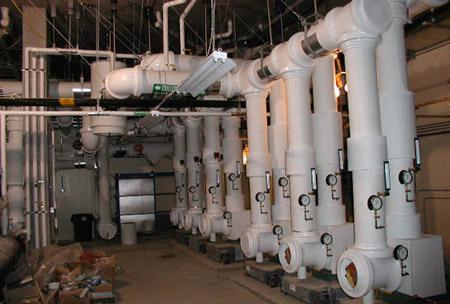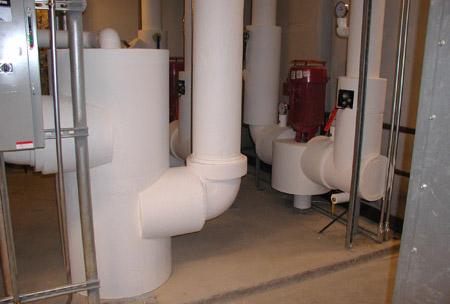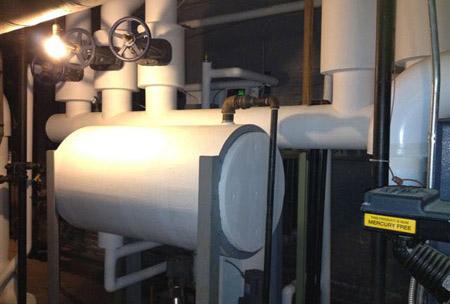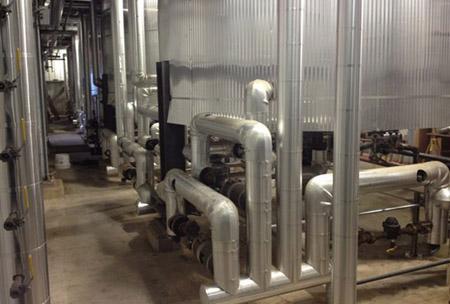Thermal Insulation for Refineries
Refineries keep America running. They're the beginning of many supply chains. Without gas and oil refineries, industries across the board would be unable to exist. That's why it's important that our refineries are running as efficiently and safely as possible.
![]()
To maintain workplace safety and production levels, sites like this require specific refinery insulation types — including fireproof insulation, pipe insulation, insulation for storage tanks, exhaust ducts, and more — which The Insulation Guy is proud to provide across the country.
Prevent corrosion under insulation and workplace incidents by installing or upgrading the thermal insulation at your refinery today. Quote your project today so you can keep your site (and country) going.
Get a Quote
Reduce Corrosion Under Insulation
Protect pipes, machinery, and equipment from corrosion under insulation (CUI) by choosing the proper insulation.
Pipe Insulation
Using proper pipe insulation can reduce moisture and condensation levels on hot and cold pipes which may cause CUI. Explore pipe insulation.
Insulation Wraps
Protect indoor and outdoor storage tanks with top of the line insulation wraps. Wraps can be custom cut and fitted for ducts, storage tanks, and more.
Mineral Insulated
Delta-Therm design allows refineries to insulate cables with flameproof, gas-tight, cold-resistant, explosion-proof, and fully grounded mineral insulation.
Fireproof Insulation
Protect the refinery and workers. Choose fiberglass insulation graded as fire-resistant or fireproof to reduce the risk of this hazard in the workplace.
Why Choose The Insulation Guy for Plumbing Insulation Products?
We have been a leader in providing industry-specific insulation for a range of industrial applications since 1989. For more than 30 years our insulation experts have been expanding our market nationwide.
Today, we pride ourselves on being truly knowledgeable about all things insulation. No matter the application (or where in the country you are), we are confident in our ability to provide recommendations and reliable insulation solutions that will help your worksite remain as efficient and productive as possible.
![]()
Questions about thermal insulation for refineries?
What is the purpose of insulation in oil and gas plants and refineries?
How do you prevent corrosion under insulation (CUI)?
What types of insulation are fireproof?
What areas are prone to corrosion under insulation (CUI)?
How does refinery insulation help the environment?









